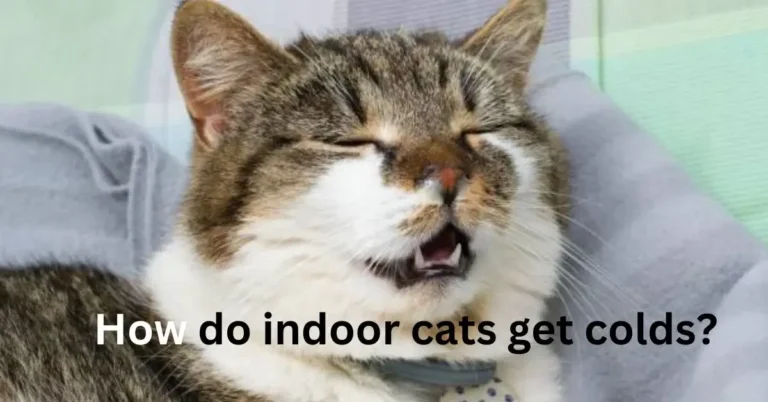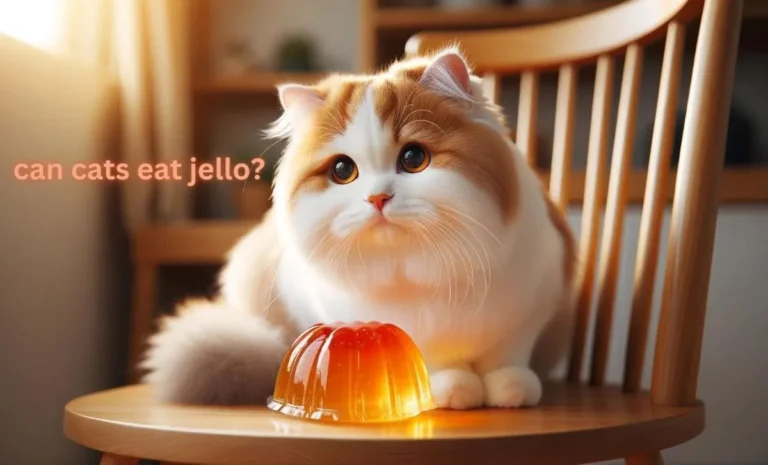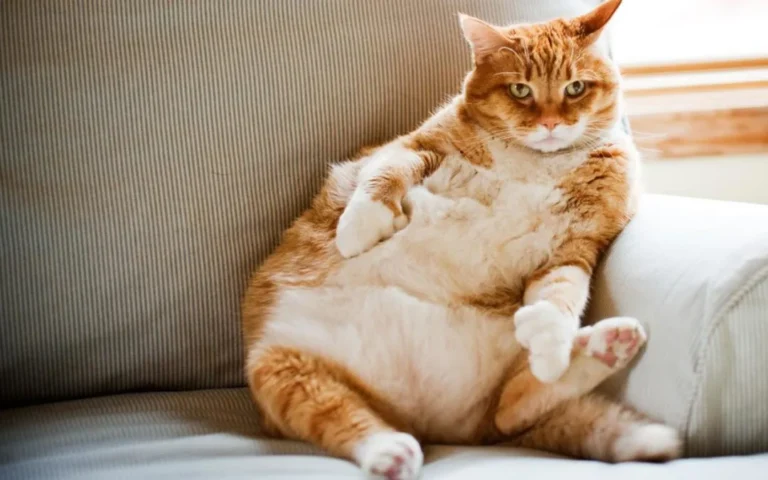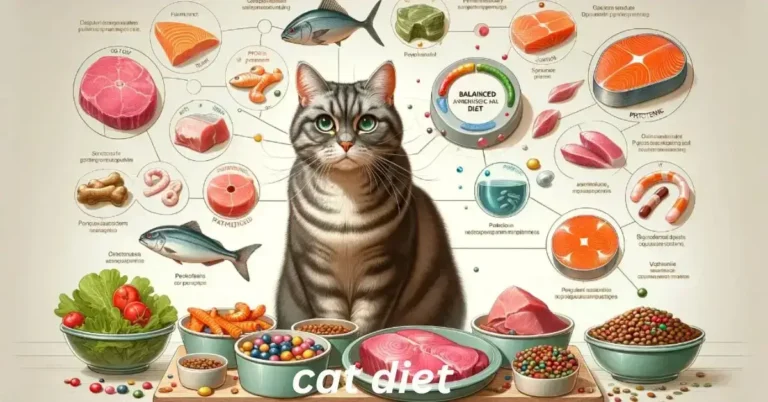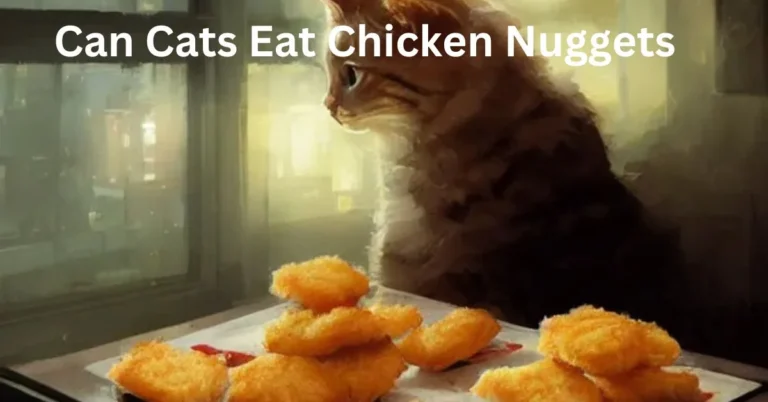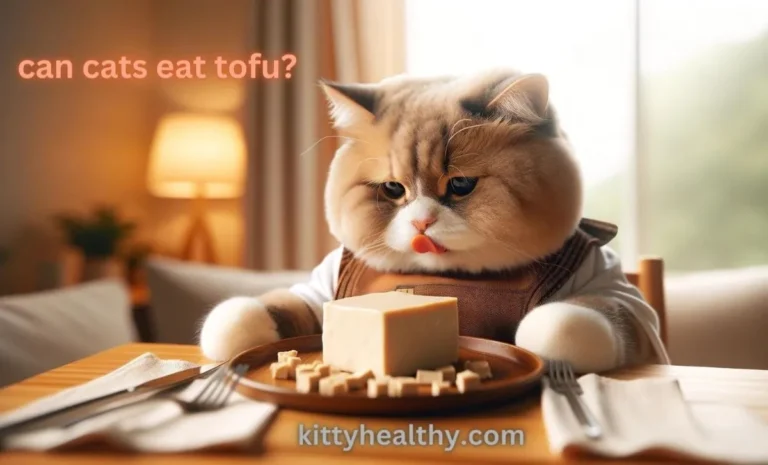Best Cat Food For IBD: Causes, Types Of IDB
If you have a cat with IBD, you know how annoying and painful it can be for you and your pet. IBD is a chronic digestive tract inflammation and irritation that causes vomiting, diarrhea, weight loss, and low appetite.

IBD can weaken your cat’s immune system, making them more susceptible to infections and other disorders and it can be managed with diet and medicine, but there is no cure.
Choosing the finest cats food for IBD might improve your cat’s quality of life and make them happier. But how can you choose IBD-friendly kitty food? What ingredients should you avoid? What are the top brands and products?
This blog post addresses these questions and more. We will discuss IBD, how to choose kitty food for it, and the best solutions. We will also offer advice on feeding your cat a new diet and tracking their development.
By the conclusion of this piece, you will know how to feed your IBD cat and make them healthier and happier.
What Causes IBD In Cats?
The exact cause of IBD in cat is not fully understood, but it is believed to be a result of a complex interaction between genetic, environmental, and immune factors. Some of the possible triggers of IBD include:
| Possible Triggers Of IBD |
|---|
| Food allergies or intolerances |
| Parasites or infections |
| Stress or anxiety |
| Antibiotics or other medications |
| Age or breed |
When your cat has IBD, their immune system overreacts to something in their diet or environment and produces inflammatory cells that damage the lining of the intestines.

This leads to reduced absorption of nutrients, increased secretion of fluids, and altered motility of the digestive tract. As a result, your cat may experience symptoms such as:
| Symptoms |
|---|
| Diarrhea |
| Vomiting |
| Constipation |
| Blood or mucus in the stool |
| Weight loss |
| Poor appetite |
| Lethargy |
| Abdominal pain |
| Gas or bloating |
types of IBD
IBD can affect any region of the digestive tract, from mouth to anus, but most commonly affects the small intestine and colon. Different types of IBD may affect your cat depending on the location and severity of inflammation:
Lymphocytic-plasmacytic enteritis/colitis
The most prevalent IBD in cats involves intestinal lymphocyte and plasma cell infiltration. Chronic or intermittent diarrhea, vomiting, weight loss, and appetite loss can result.
Eosinophilic enteritis/colitis
Eosinophils, white blood cells, accumulate in the intestinal wall in this IBD. It can mimic lymphocytic-plasmacytic enteritis/colitis and be linked to cutaneous or respiratory allergies.
Granulomatous enteritis/colitis
This rare IBD causes intestinal granulomas and inflammatory cell nodules. It can cause extreme weight loss, diarrhea, vomiting, and abdominal pain.
Your vet can diagnose IBD based on your cat’s history, physical exam, blood, fecal, and imaging tests. However, endoscopy or surgery to biopsy intestinal tissue is needed to diagnose IBD.
A biopsy can also rule out cancer, infections, and foreign substances that may mimic IBD.
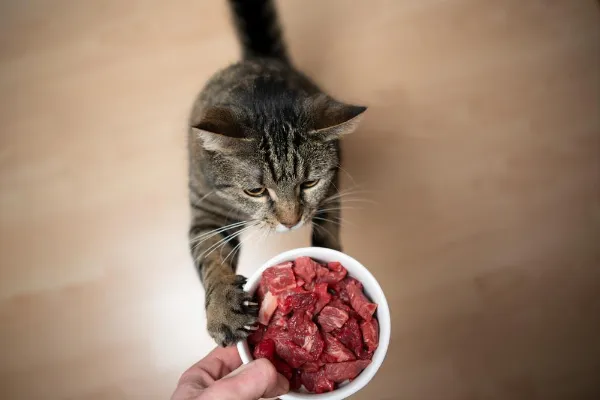
How do you choose best cat food for IBD?
The best cats food for IBD provides your cat’s nutritional needs without causing inflammation. There is no one-size-fits-all IBD diet because cats have diverse sensitivities and preferences. There are some common guidelines for choosing IBD cats food:
- Select an AAFCO-compliant, complete, and balanced cat food for your cat’s life stage and activity level. Avoid low-quality feline food with fillers, by-products, artificial colors, flavors, or preservatives, which may worsen IBD.
- Choose a cat food with few ingredients and a novel protein source. Food allergies and intolerances, which often cause IBD, can be reduced by a limited-ingredient diet. New protein sources for cats include rabbit, duck, venison, and kangaroo. This can inhibit protein-induced immunological reactions in cats. You can also feed your cat hydrolyzed protein, which breaks down protein into smaller molecules less likely to cause allergies.
- Select a cat meal with moderate fiber and high moisture. Fiber can regulate your cat’s digestive motions and maintain healthy gut bacteria, reducing inflammation. Finding the appropriate fiber balance for your cat is important since too much might cause gas, bloating, or diarrhea. IBD can cause dehydration and constipation, but moisture can assist. Your cat can stay hydrated by eating wet or dry food with water or broth.
- Choose a cat food with probiotics, prebiotics, or omega-3s. Beneficial bacteria like probiotics can restore gut microbiome balance, reducing inflammation and improving digestion. Prebiotics nourish and grow probiotics. Anti-inflammatory omega-3 fatty acids can lower inflammatory cell and cytokine production, alleviating IBD symptoms.
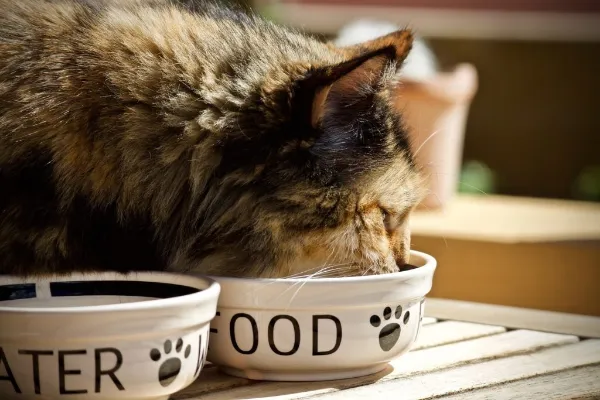
What are Some of the Best Cat Food for IBD?
Many cats food manufacturers claim to be safe and helpful for IBD cats, but not all are. Please consult your vet before changing your cat’s diet, and follow their advice. Based on ingredients, quality, and user evaluations, these cat foods for IBD is the best:
- Hill’s Prescription Diet Skin/Food Sensitivities Dry Cat Food: Hydrolyzed chicken and corn starch are the sole proteins and carbohydrates in this prescription cat food. Omega-3 and omega-6 fatty acids, antioxidants, vitamins, and minerals nourish your cat’s skin, hair, and immune system. It helps IBD-prone cats with food allergies or intolerances. Chewy ranks it 4.7 out of 5 stars, with many IBD cat owners reporting success.
- Royal Canin Vet Diet Hydrolyzed Protein HP: This prescription cat food contains just hydrolyzed soy protein and rice. Antioxidants, prebiotics, and omega-3s aid your cat’s digestion and immunity. It helps cats with dietary allergies or intolerances, which can worsen IBD. The Chewy rating is 4.6 out of 5 stars, with many customers praising its IBD cat benefits and taste.
- Few-ingredient Natural Balance Diets Green Pea & Duck Grain-Free Dry Cat Food: Only duck protein and green peas carbs are in this non-prescription cat food. For cat health, it contains omega-3 and omega-6 fatty acids, taurine, vitamins, and minerals. This helps cats with food sensitivities that aggravate IBD. Customers rate Chewy 4.5 stars for improving digestion and reducing IBD symptoms in cats.
- Naturally Low-Ingredient Diet Grain-Free Recipe with Real Rabbit Freeze-Dried Raw Coated Dry Cat Food: ONLY bunny protein and peas carbs are in this non-prescription cat food. Omega-3 and omega-6 fatty acids, probiotics, vitamins, and minerals help your cat’s digestion and immune system. Freeze-dried raw rabbit coating adds flavor and nutrients. This helps cats with food sensitivities that aggravate IBD. Chewy users give it 4.4 stars for quality and taste.
How do you transition your cat to a new diet for IBD?
If your feline has IBD, alter its food gradually and cautiously. An abrupt diet change might worsen your cat’s IBD by causing intestinal distress and stress. To switch your cat to an IBD diet, take these steps:
- Do not change your cat’s diet with your vet’s advice. Your vet can recommend the best IBD cats food and any drugs or supplements. Your vet can also track your cat’s development and change diet or therapy.
- Introduce new cat food gently and in small amounts. Mix a little amount of fresh cat food with your cat’s current meal and gradually increase the proportion over 7–10 days. Helping your cat adjust to the new flavor and texture reduces the likelihood of rejection or intolerance.
- Track your cat’s appetite, weight, and stool quality during the transition. If your cat seems to like and tolerate the new food, you can switch it totally. If your cat dislikes the new food or develops digestive issues like vomiting, diarrhea, constipation, or blood in the stool, stop the transfer and consult your vet. Your cat may need a different food or more time to adjust.
- Keep your kitty on the new food and avoid snacks, table scraps, and other IBD-causing foods. The finest kitty food for IBD should be fed exclusively to your cats. Other foods might worsen IBD symptoms and make it harder to manage for your cat. You can reward your feline with regular cats food or an IBD-specific treat.
How do you monitor your cat’s progress and well-being with IBD?
The finest feline food for IBD might relieve symptoms but not cure the ailment. Chronic IBD can flare up at any time and requires continual management. You must monitor your cat’s IBD development and well-being and respond if anything changes. Tips for monitoring your cat’s IBD development and health:
| Sr No | Tips |
|---|---|
| 1 | Keep track of your cat’s diet, weight, and stool quality. This might help you track your cat’s food and treatment response and see trends. This information might help you talk to your vet about diet and treatment changes. |
| 2 | Check for symptom improvement or worsening in your cat. Improved symptoms include increased appetite, weight gain, normal stool consistency and frequency, and energy and activity. Symptoms of worsening include decreased appetite, weight loss, vomiting, diarrhea, constipation, blood or mucus in the stool, tiredness, and depression. |
| 3 | You should see your vet regularly and follow their advice. To assess your cat’s health and IBD progress, your vet can run physical, blood, fecal, and other tests. The doctor can also recommend drugs or vitamins to help your cat manage inflammation and discomfort. Your vet can also suggest food or treatment changes for your cat. |
| 4 | Give your cat a relaxing space. Stress can cause IBD in cats, so provide them with a peaceful area to unwind. Give them toys, scratching posts, and other enrichment items to stimulate and entertain your cat. Spend time with your cat and show them love and attention to make them feel safe and happy. |
FAQs
Feed your cat with IBD a hypoallergenic or prescription diet recommended by your veterinarian to manage inflammation and digestive issues.
Yes, cats with IBD can typically eat cooked, boneless, and skinless chicken as part of a prescribed diet, but consult your vet for specific guidance.
Avoid ingredients like dairy, beef, and certain grains; your vet may recommend a limited-ingredient or hypoallergenic diet for cats with IBD.
While rice is generally considered easily digestible, consult your vet to determine if it’s suitable for your cat’s specific IBD condition.
Cats with IBD may experience abdominal discomfort, diarrhea, or vomiting, indicating potential pain; consult your vet for proper diagnosis and management.
Conclusion
IBD is a difficult and complex ailment that can give cats and their owners a lot of pain. You can help your cat manage IBD and live happier lives with the appropriate diet and therapy.
The best cats food for IBD provides your cat’s nutritional needs without causing inflammation. Cats with IBD have several diet options, but you must consult your vet to discover the optimal one.
Transition your cat to the new diet and monitor their IBD progress and well-being. Follow these methods to aid your IBD cat and show them you care.
Related Posts
Warning Signs When Introducing Cats: Identifying And Addressing
Can Cats Eat Chicken Bones: Benefits, Risks & Types Of Bones

